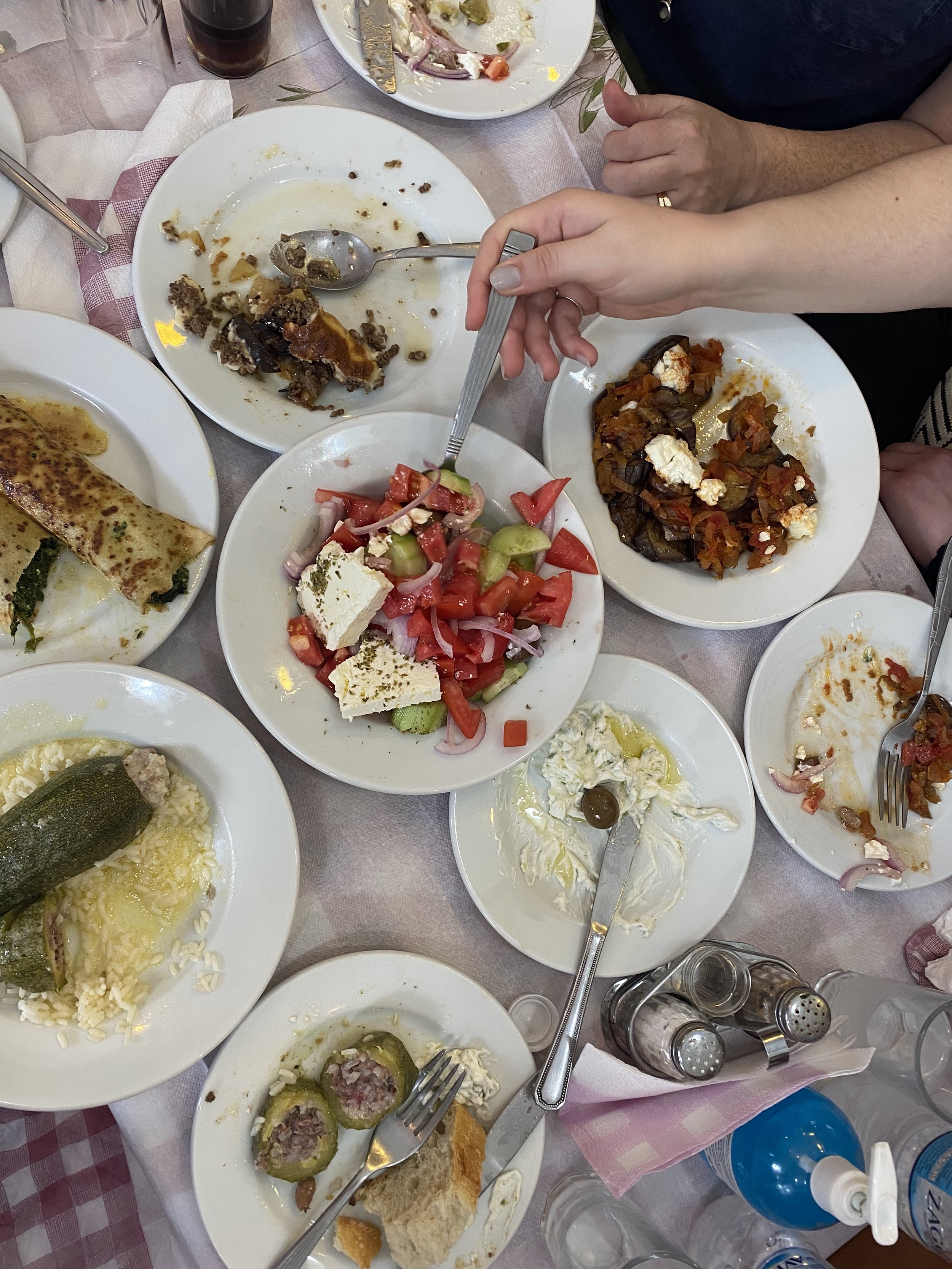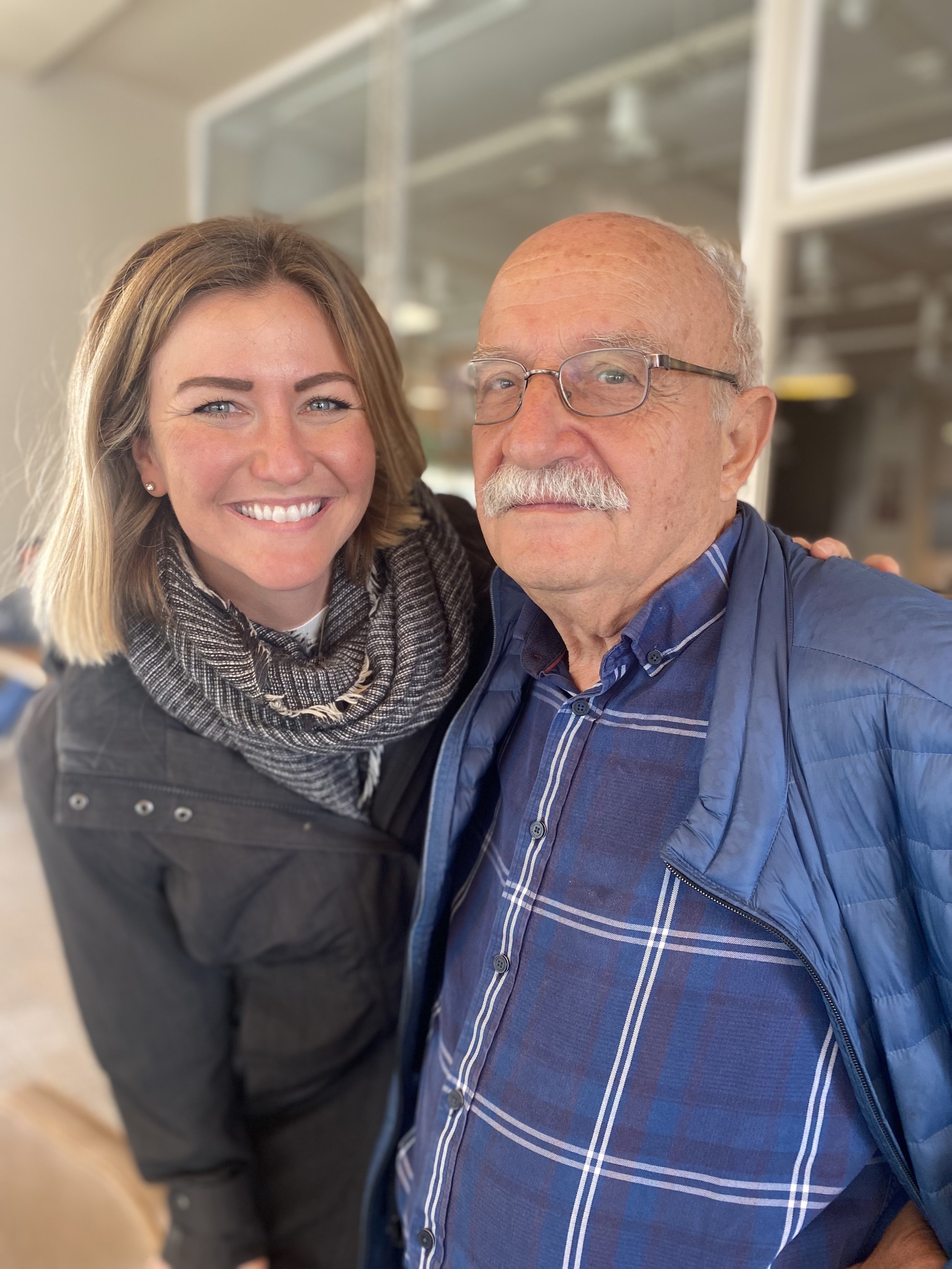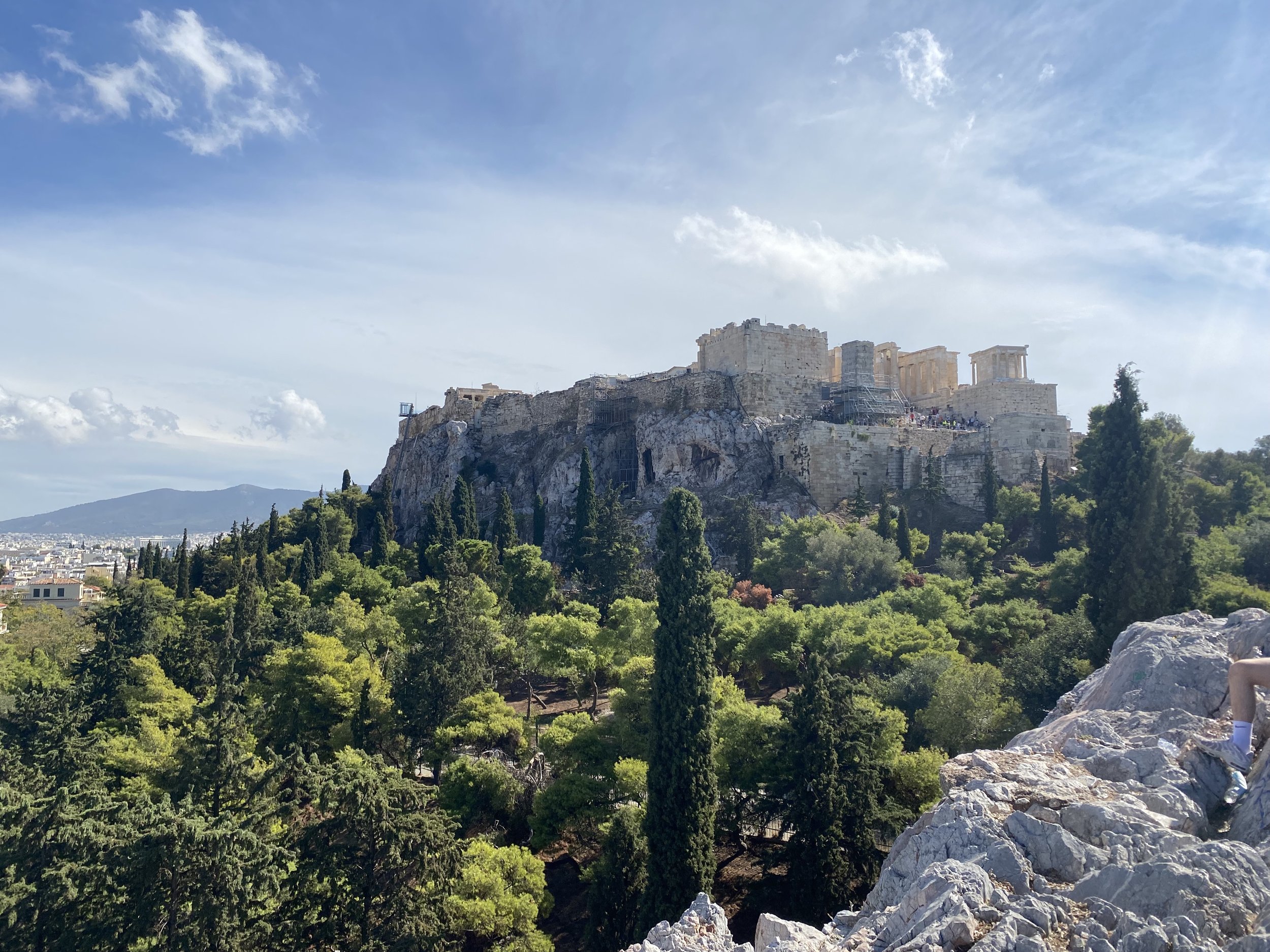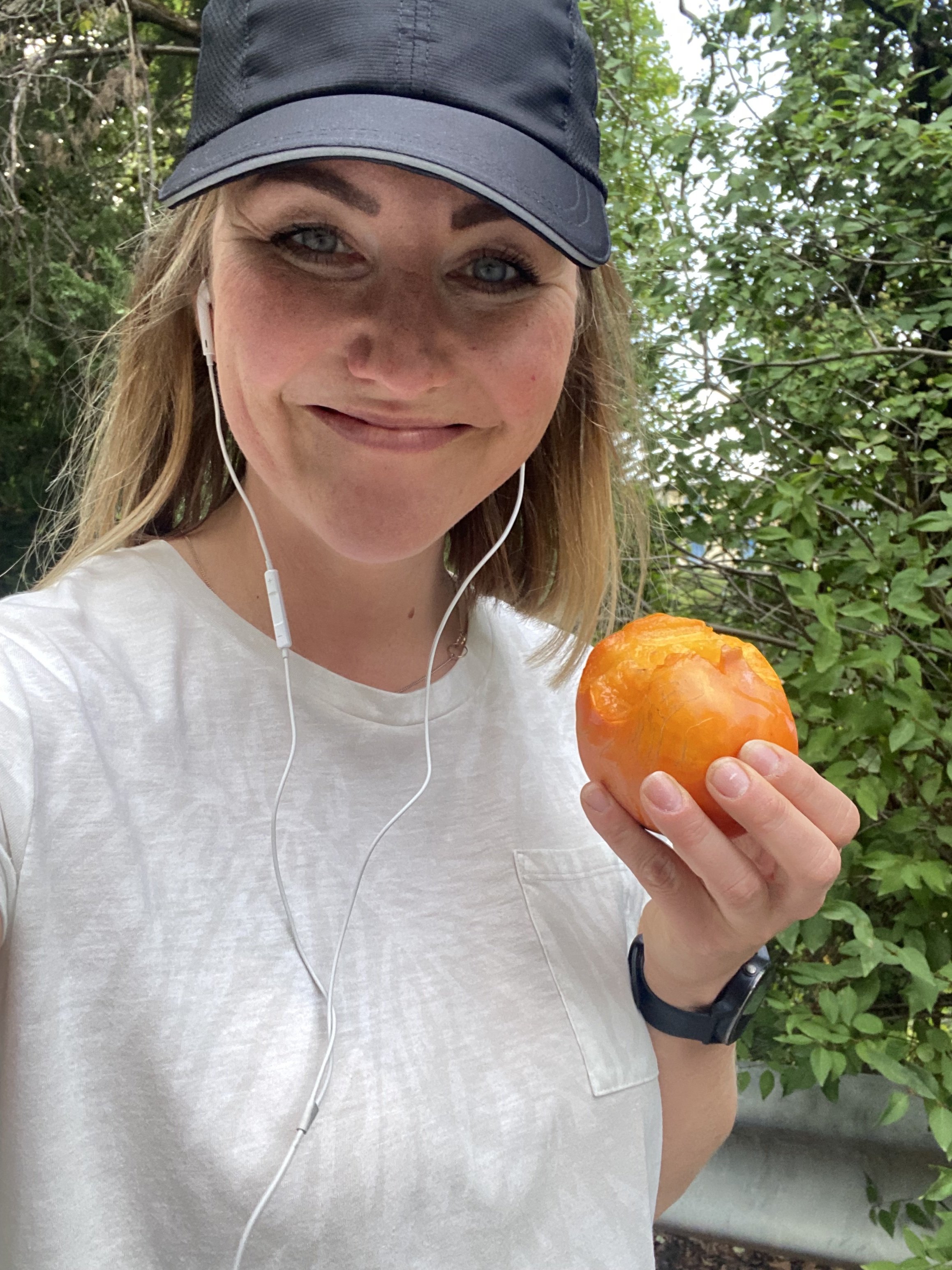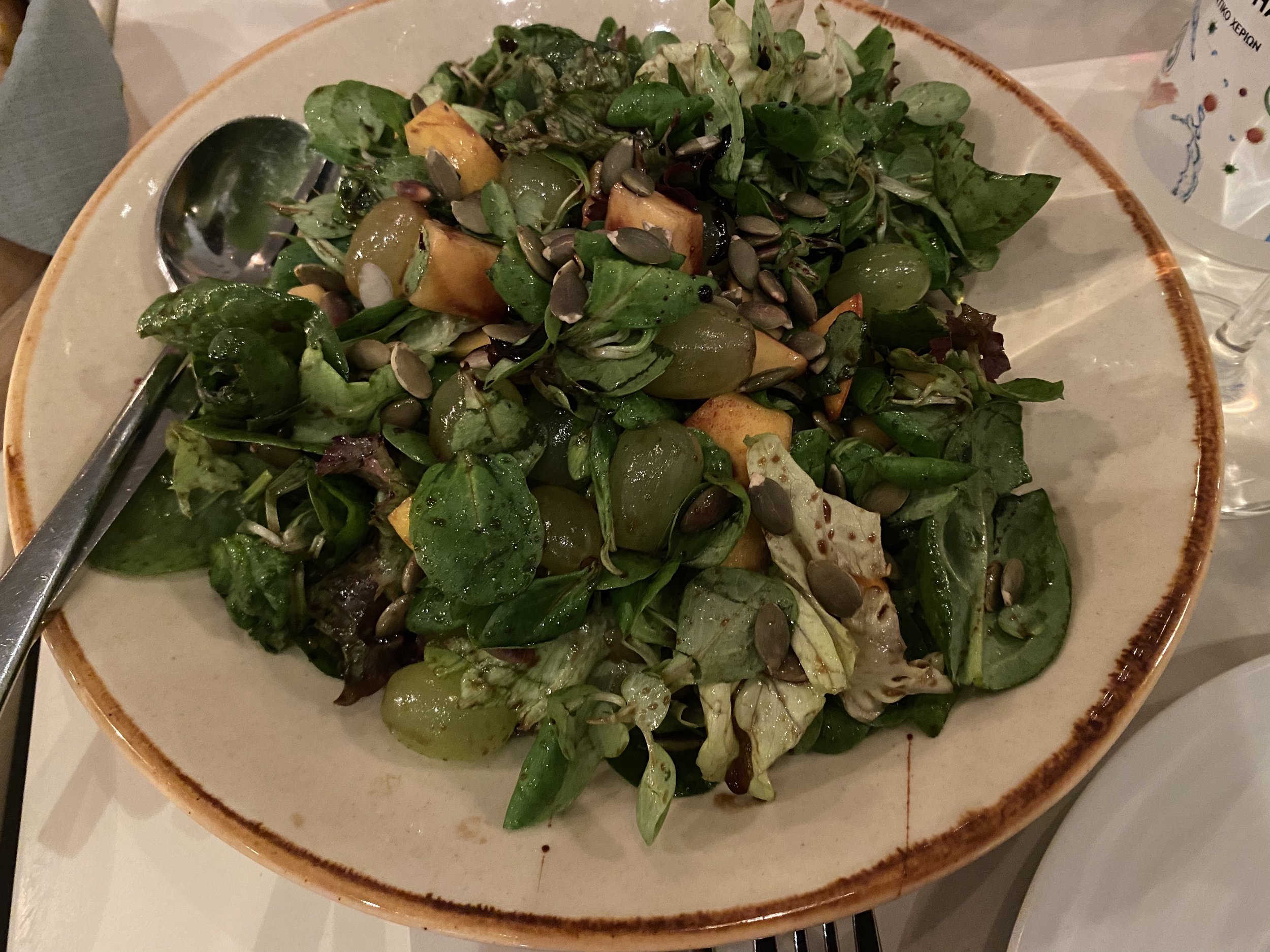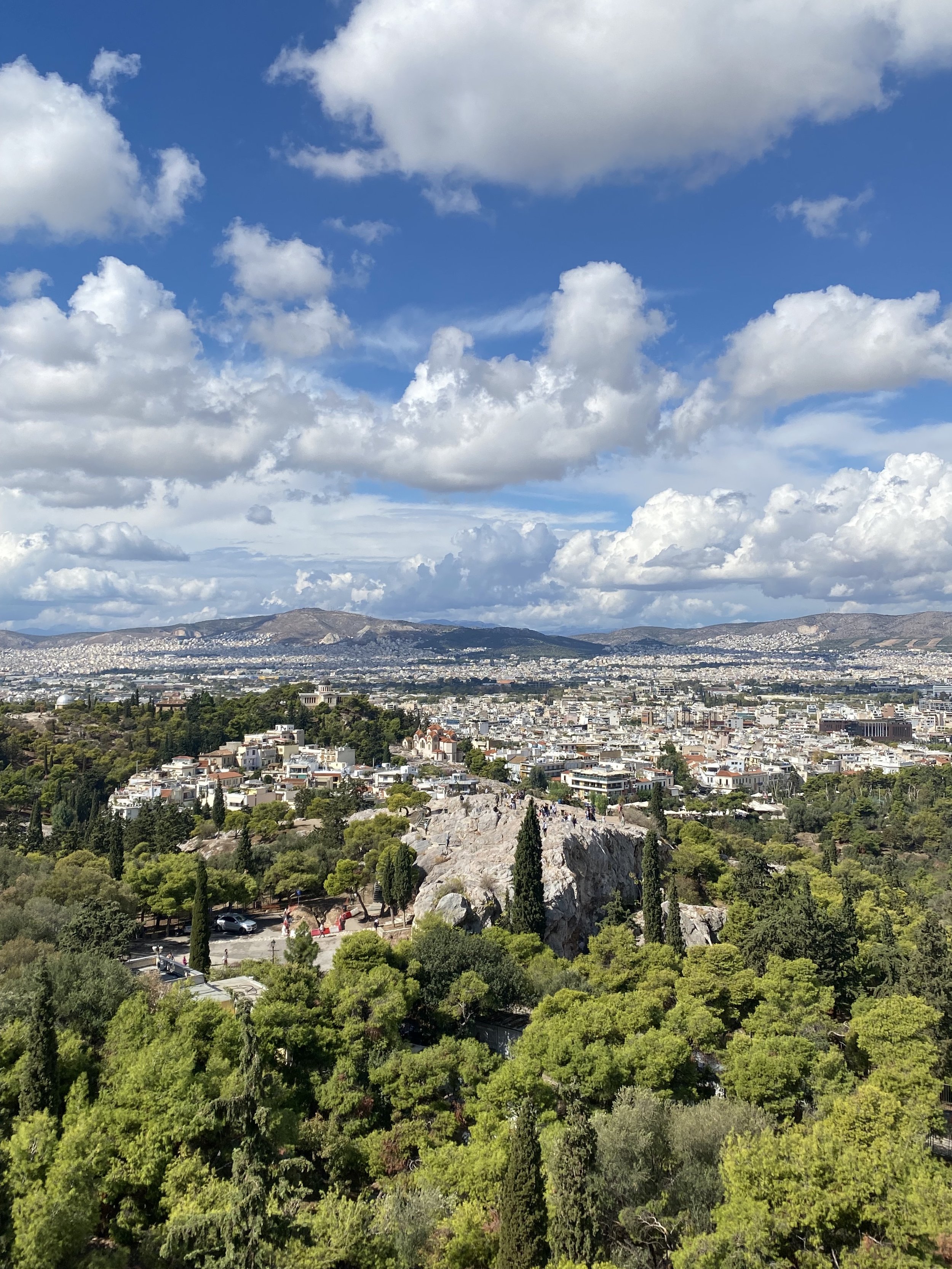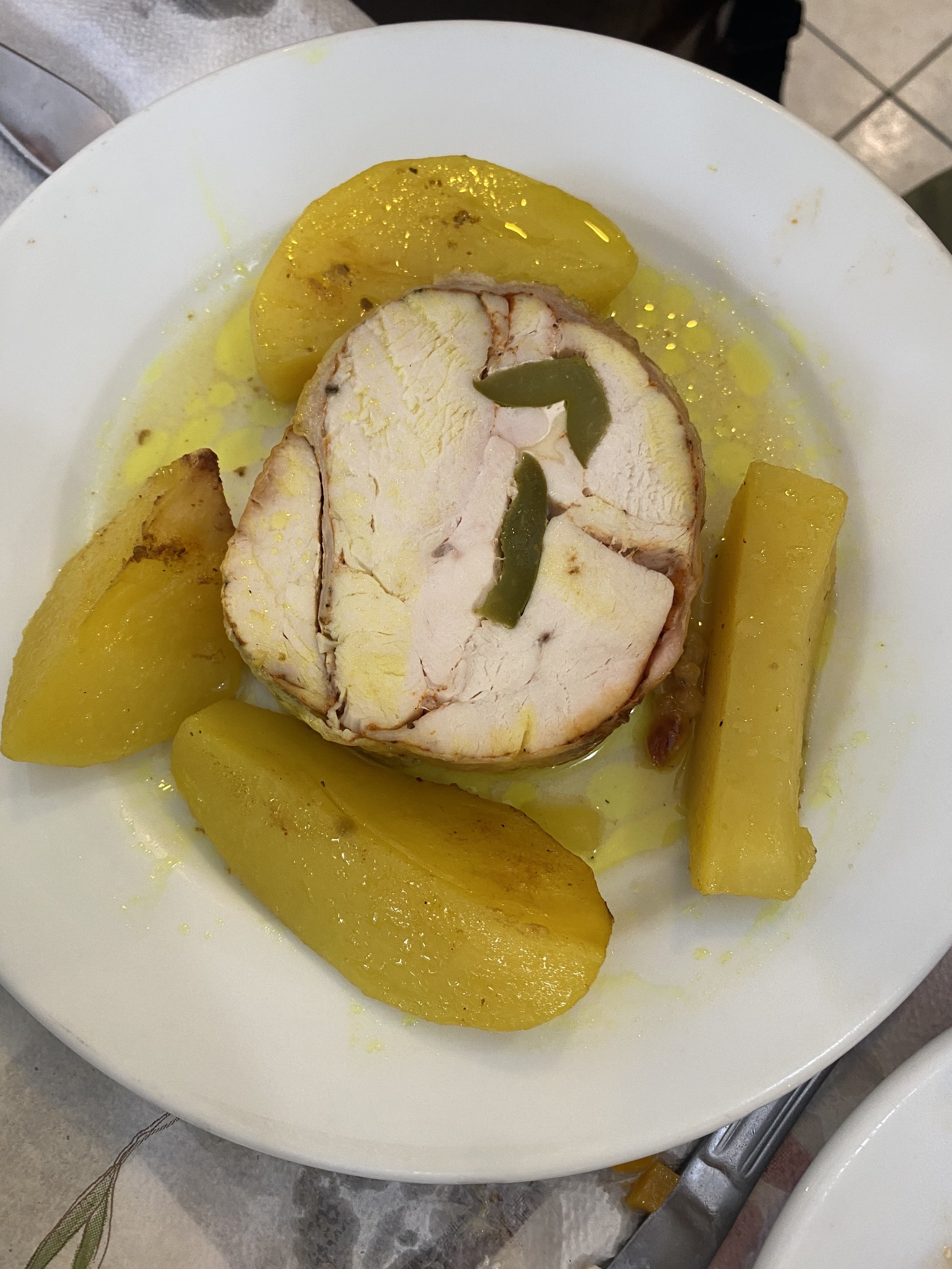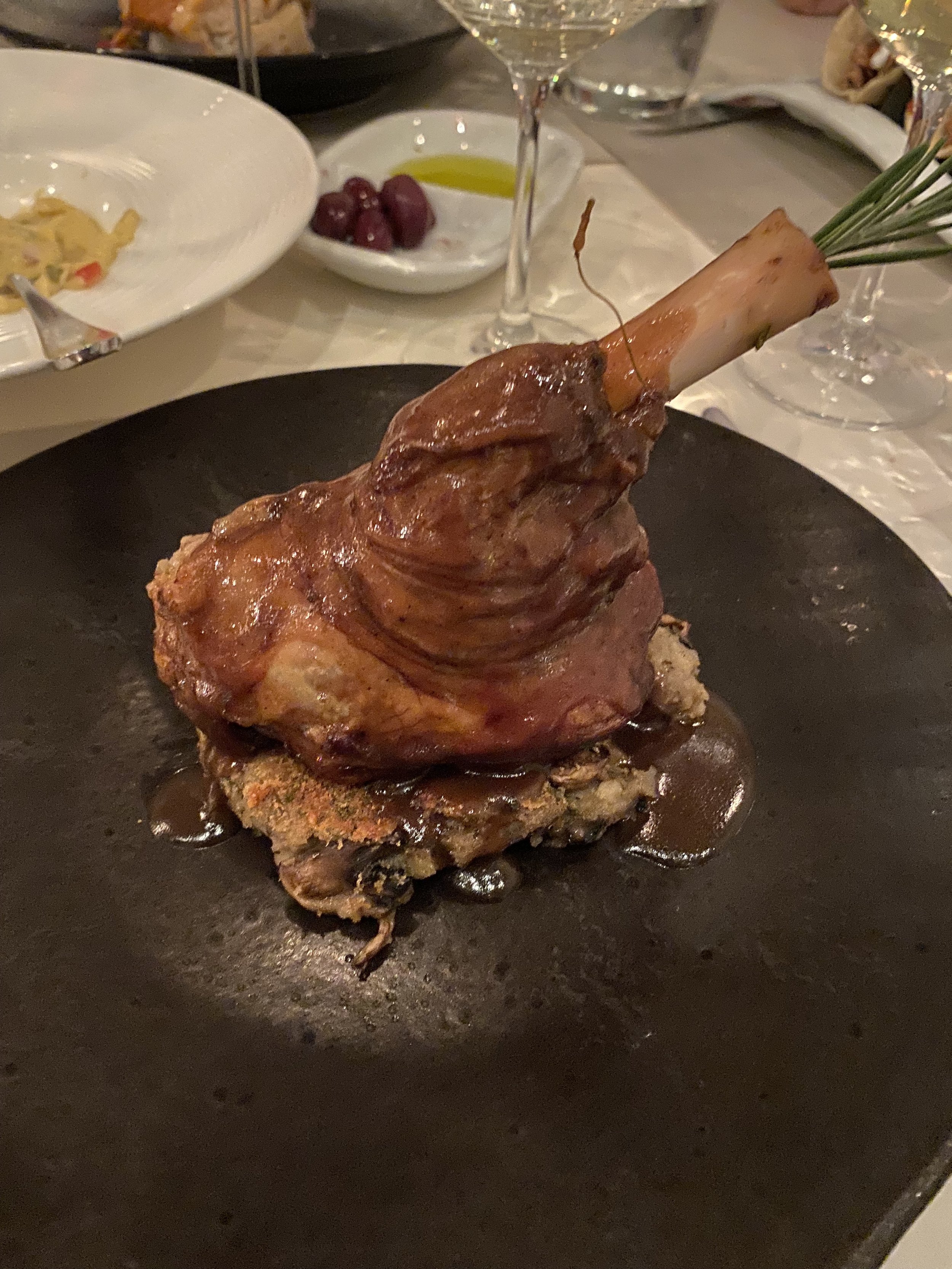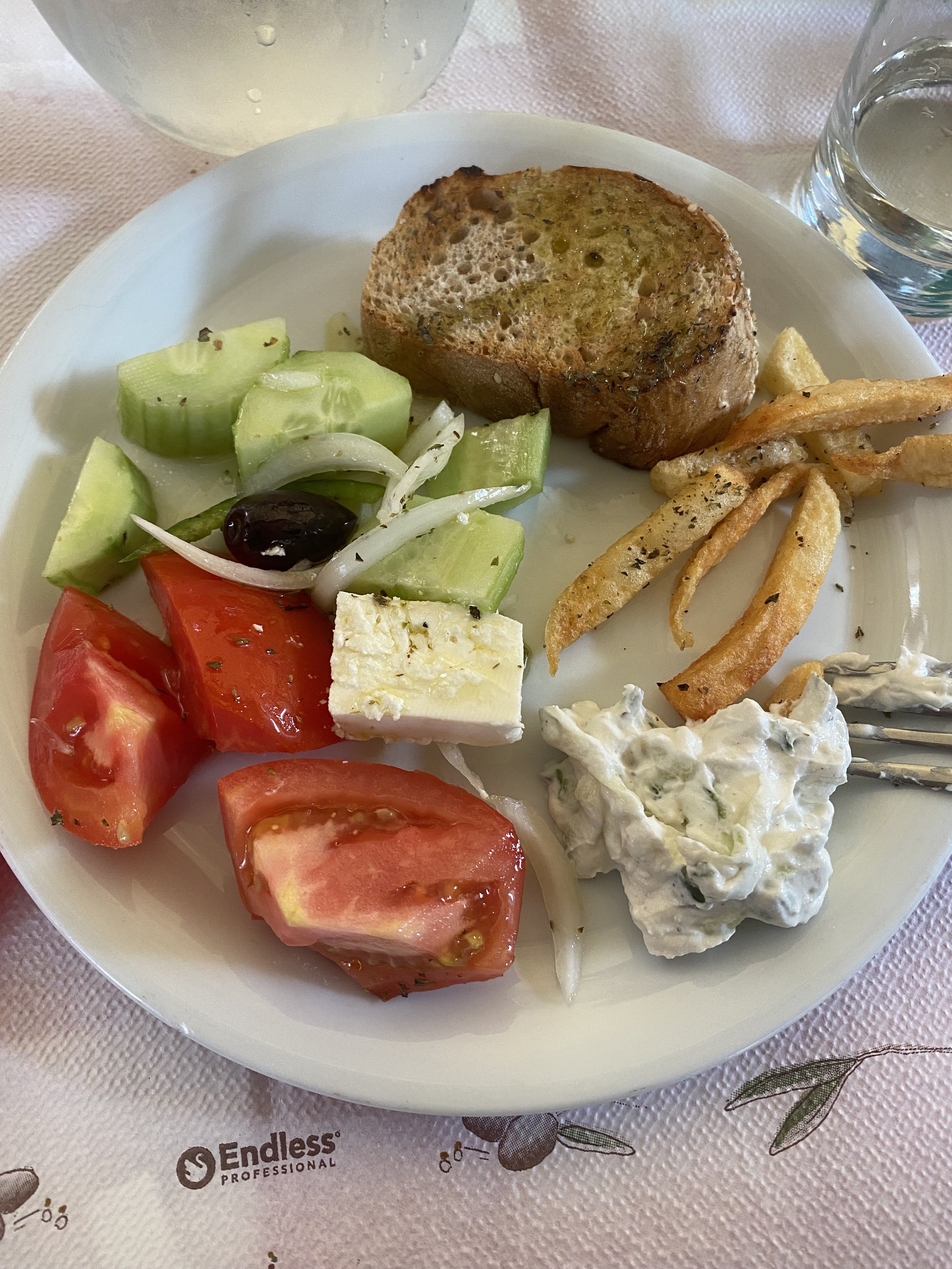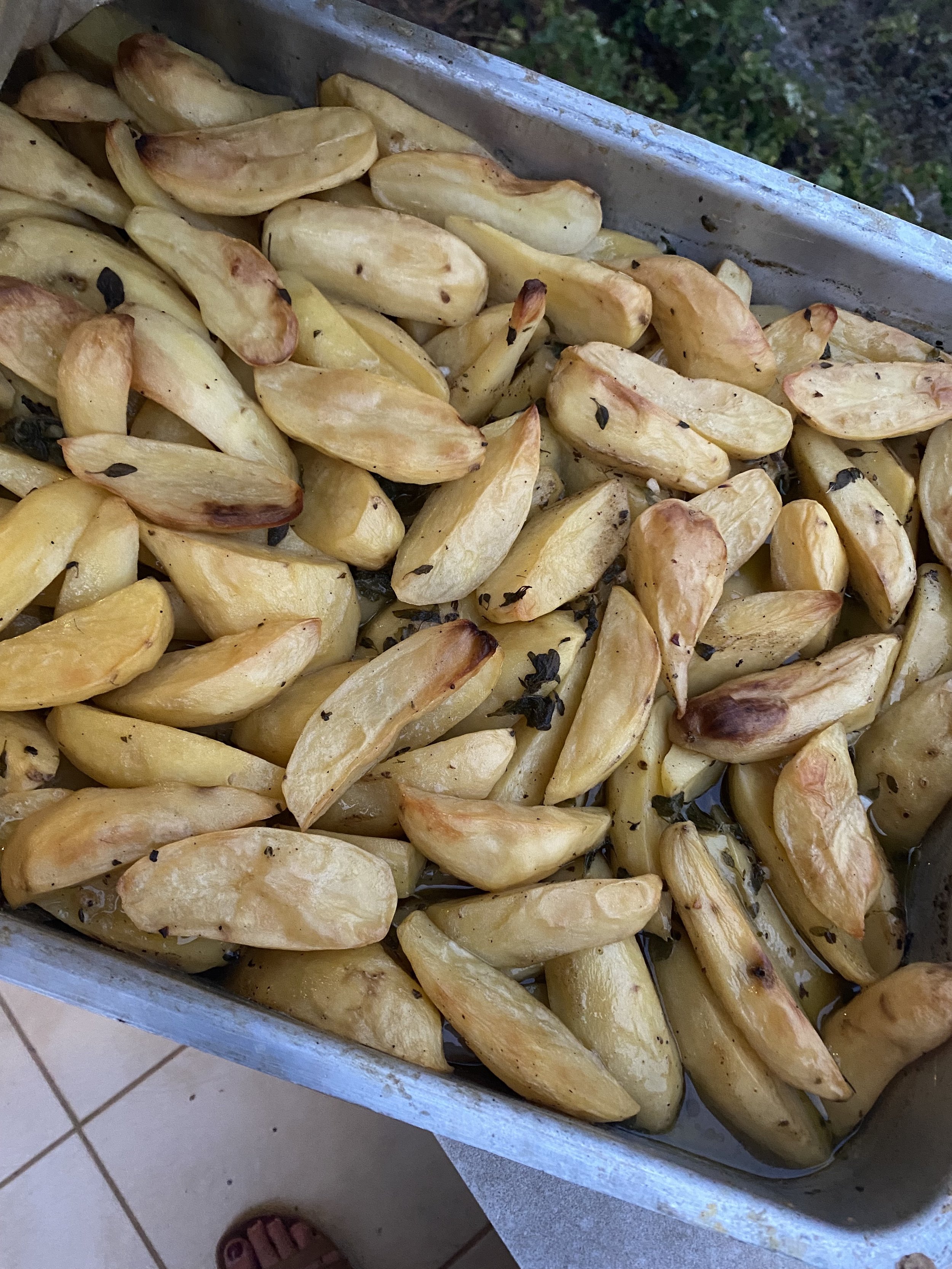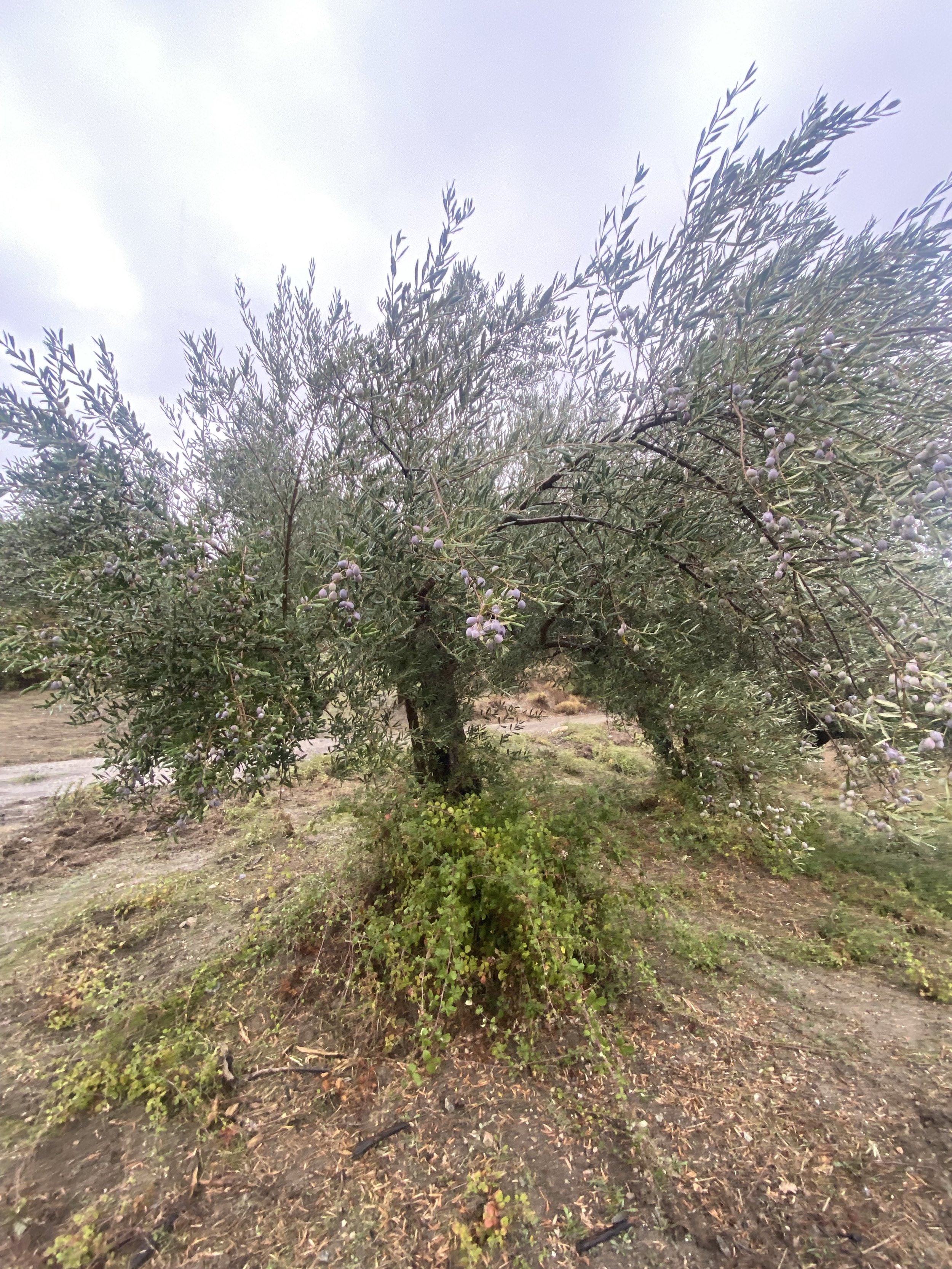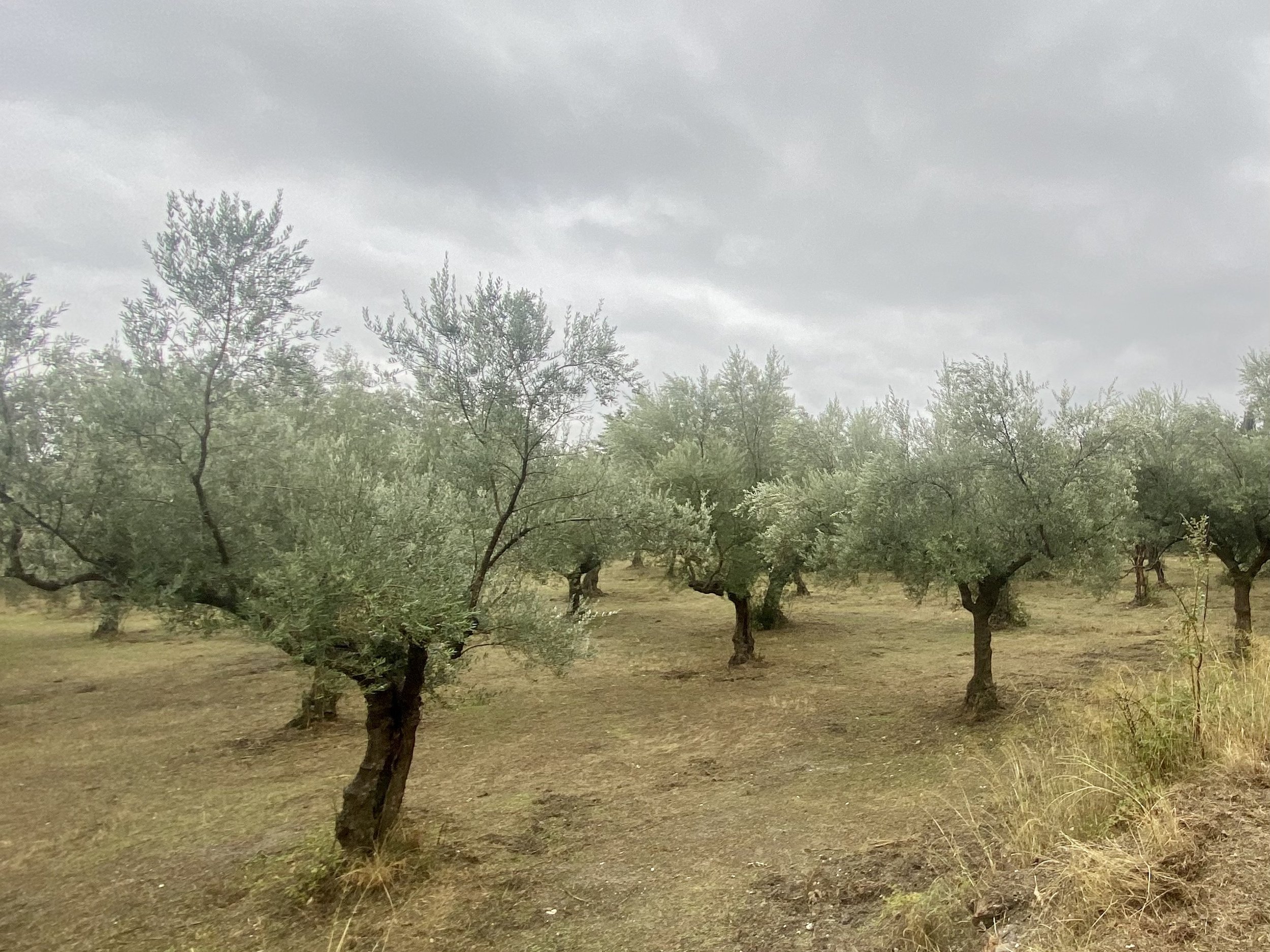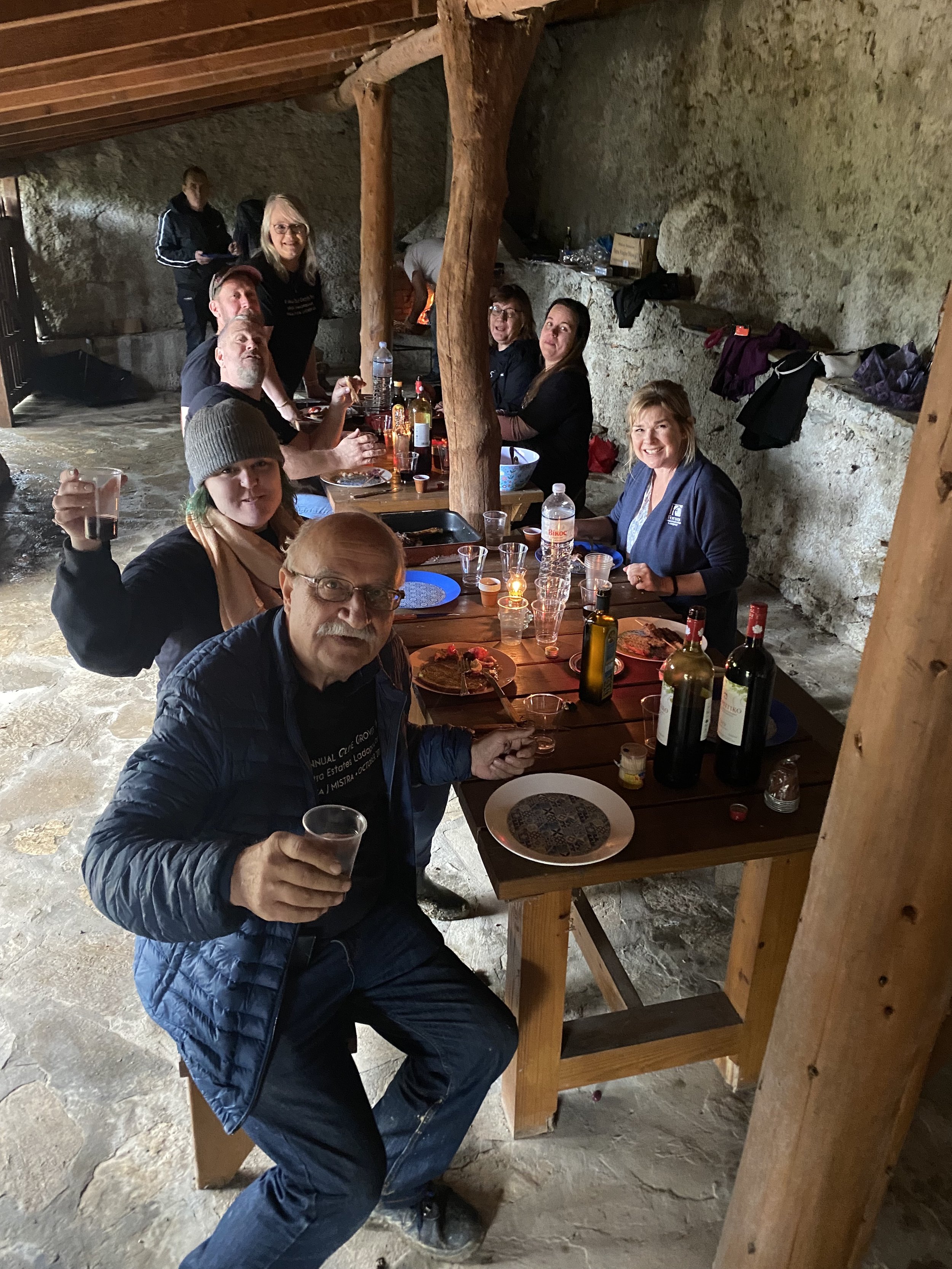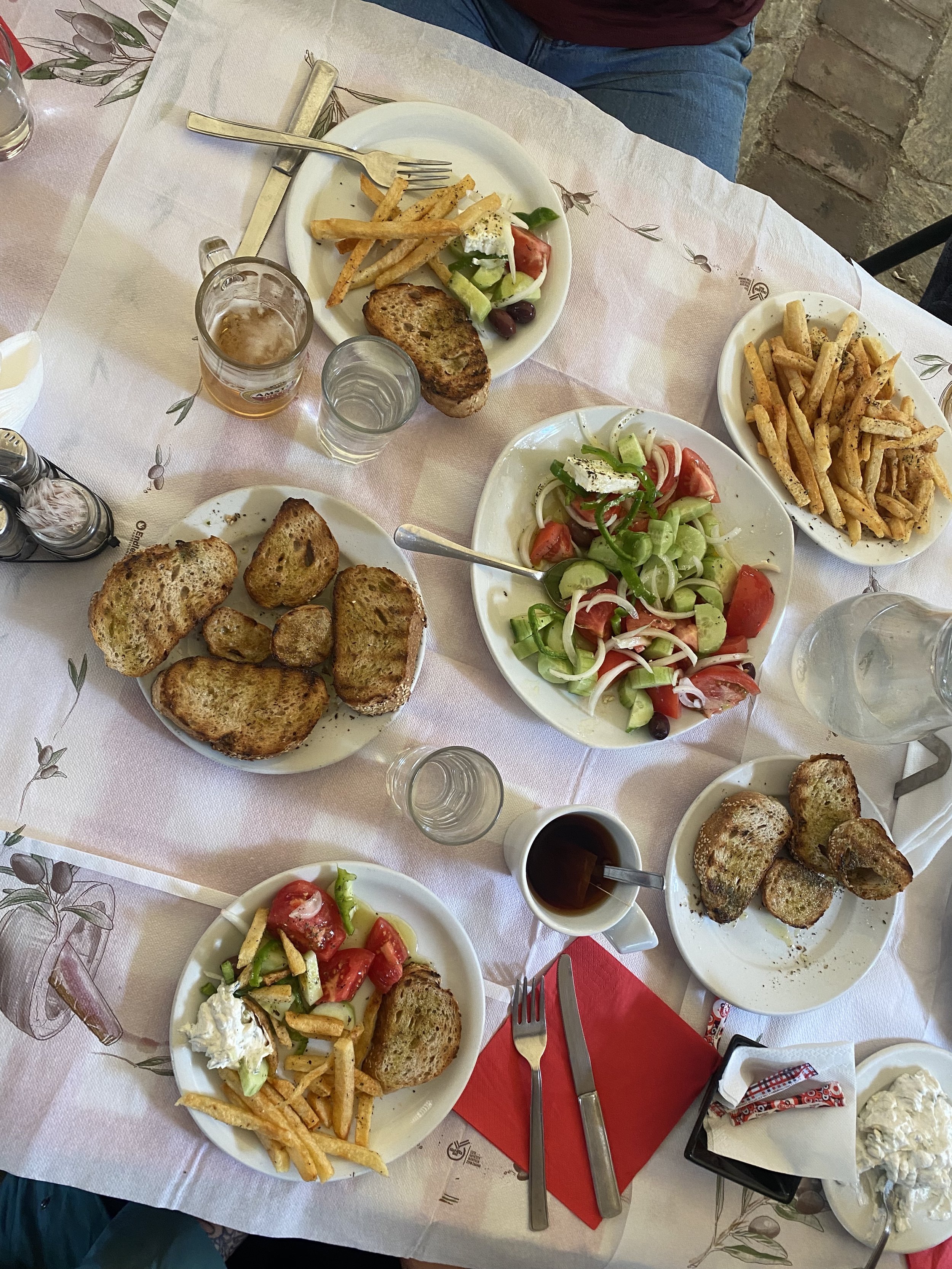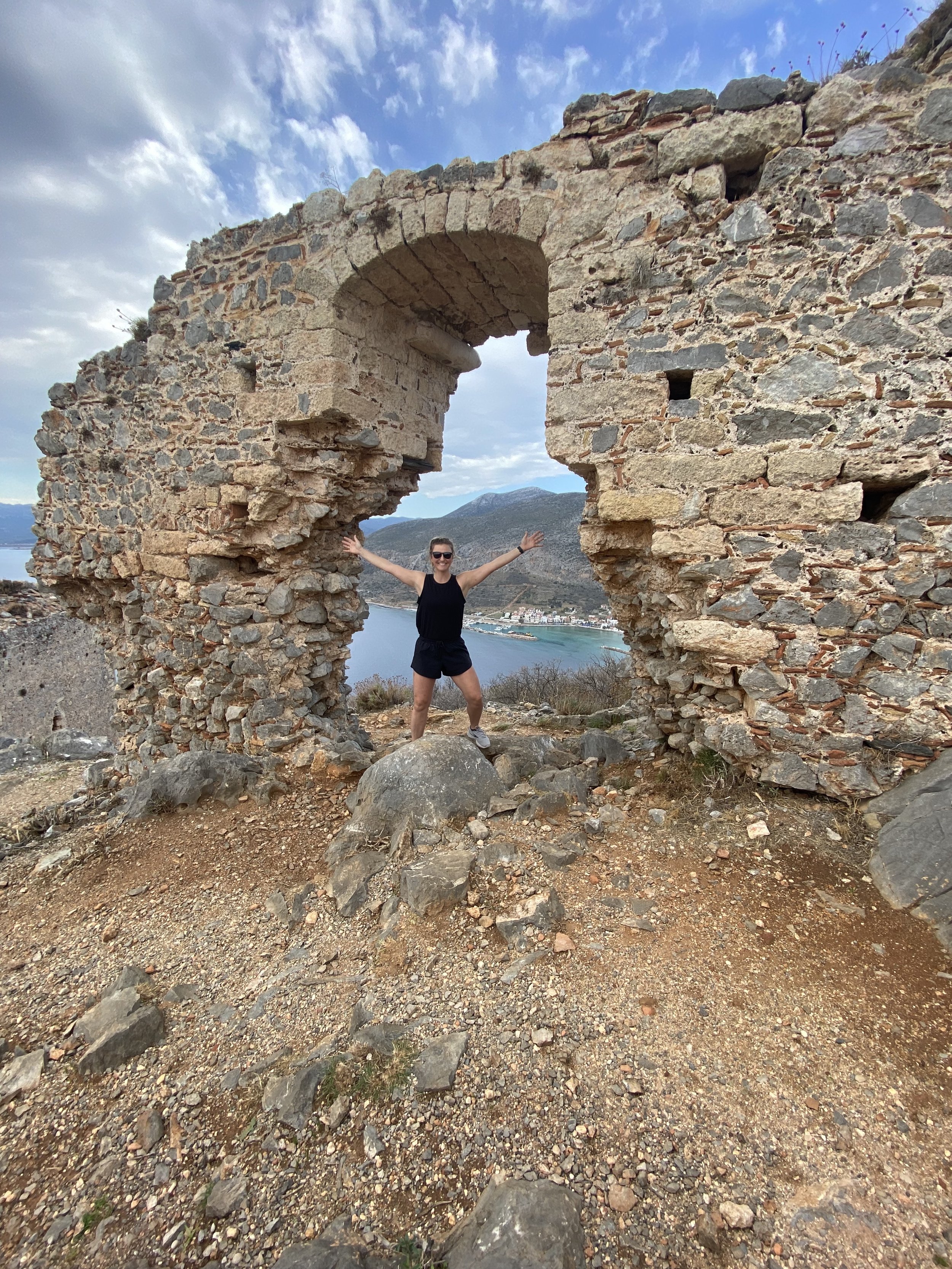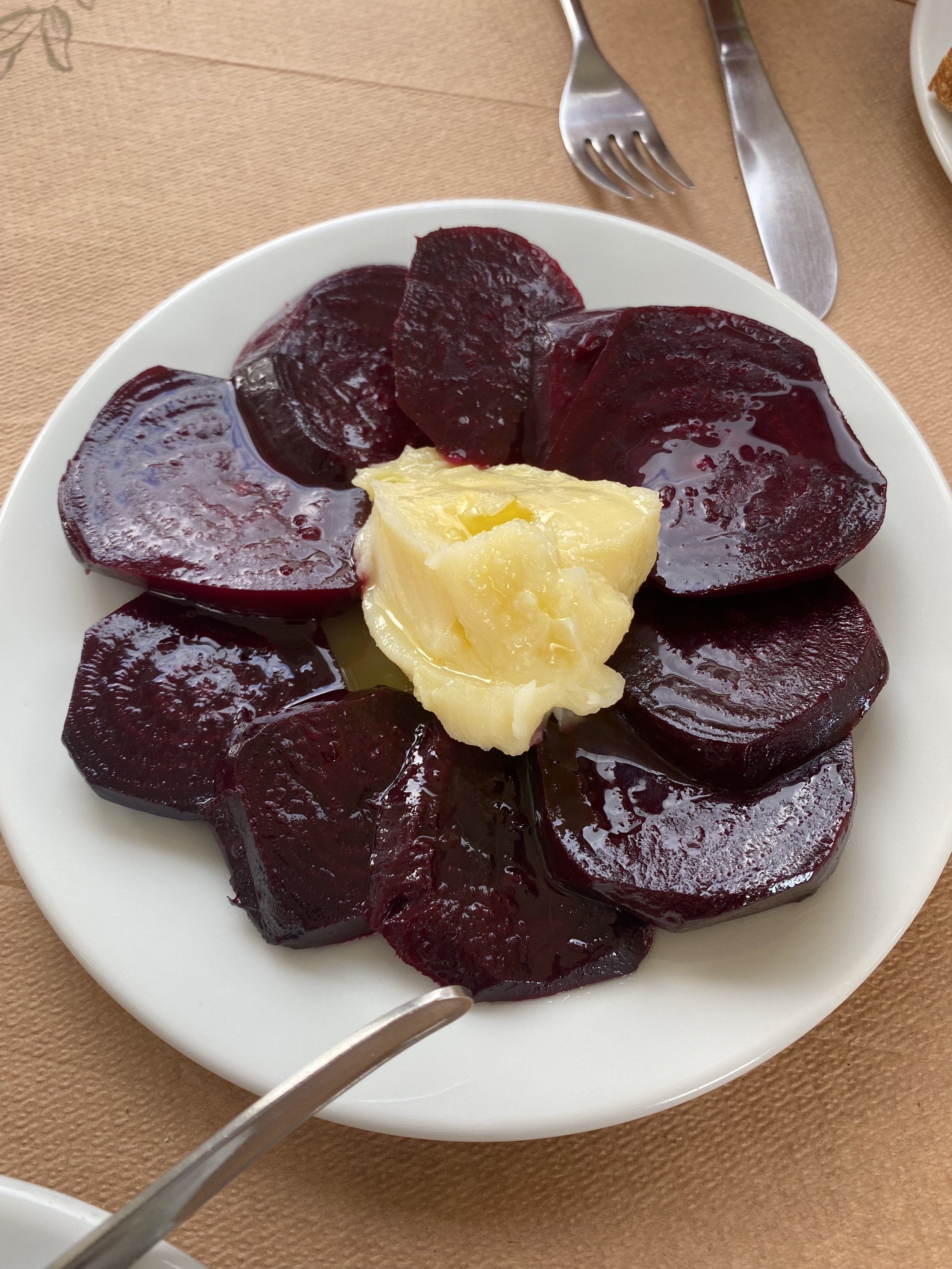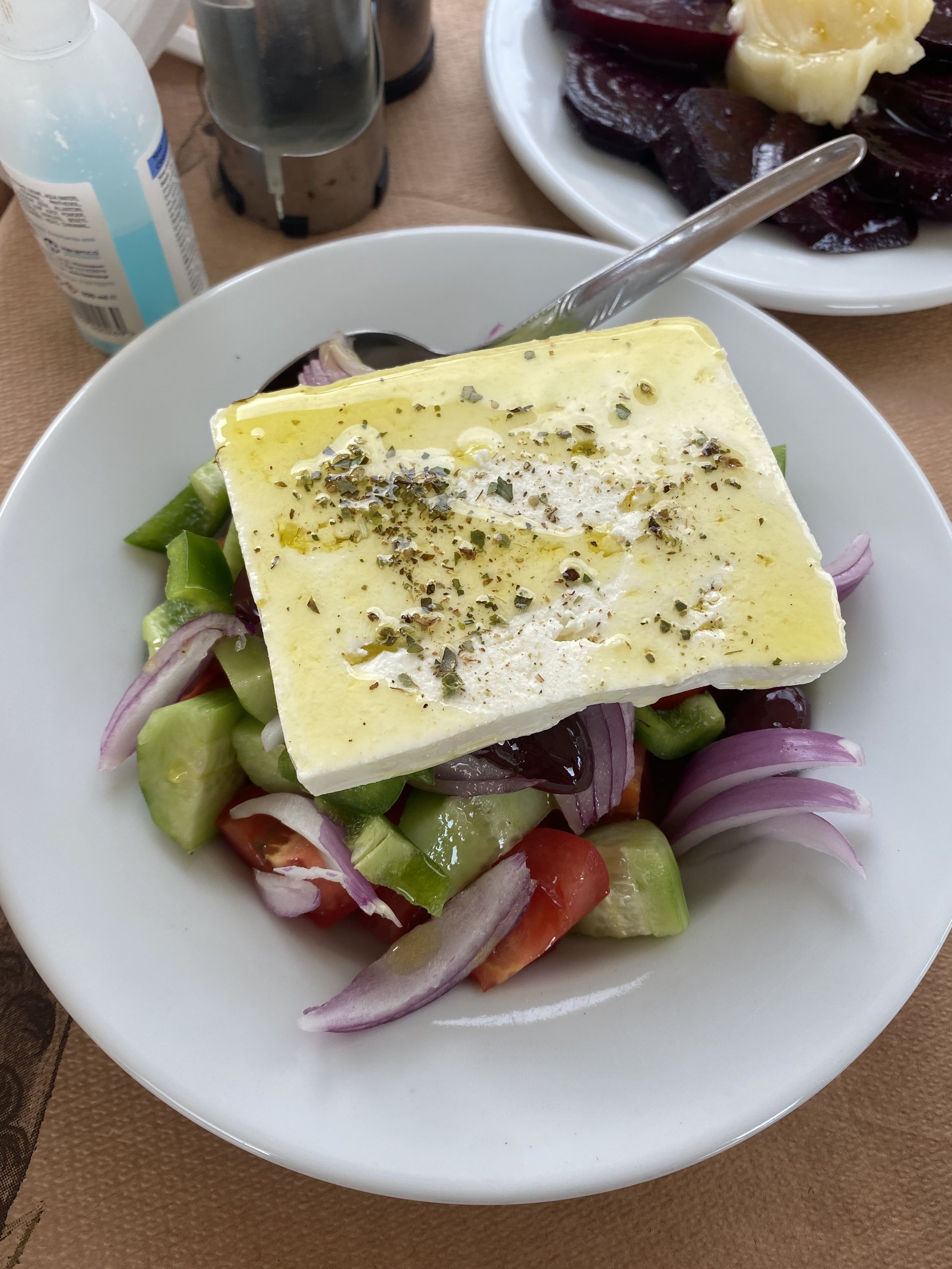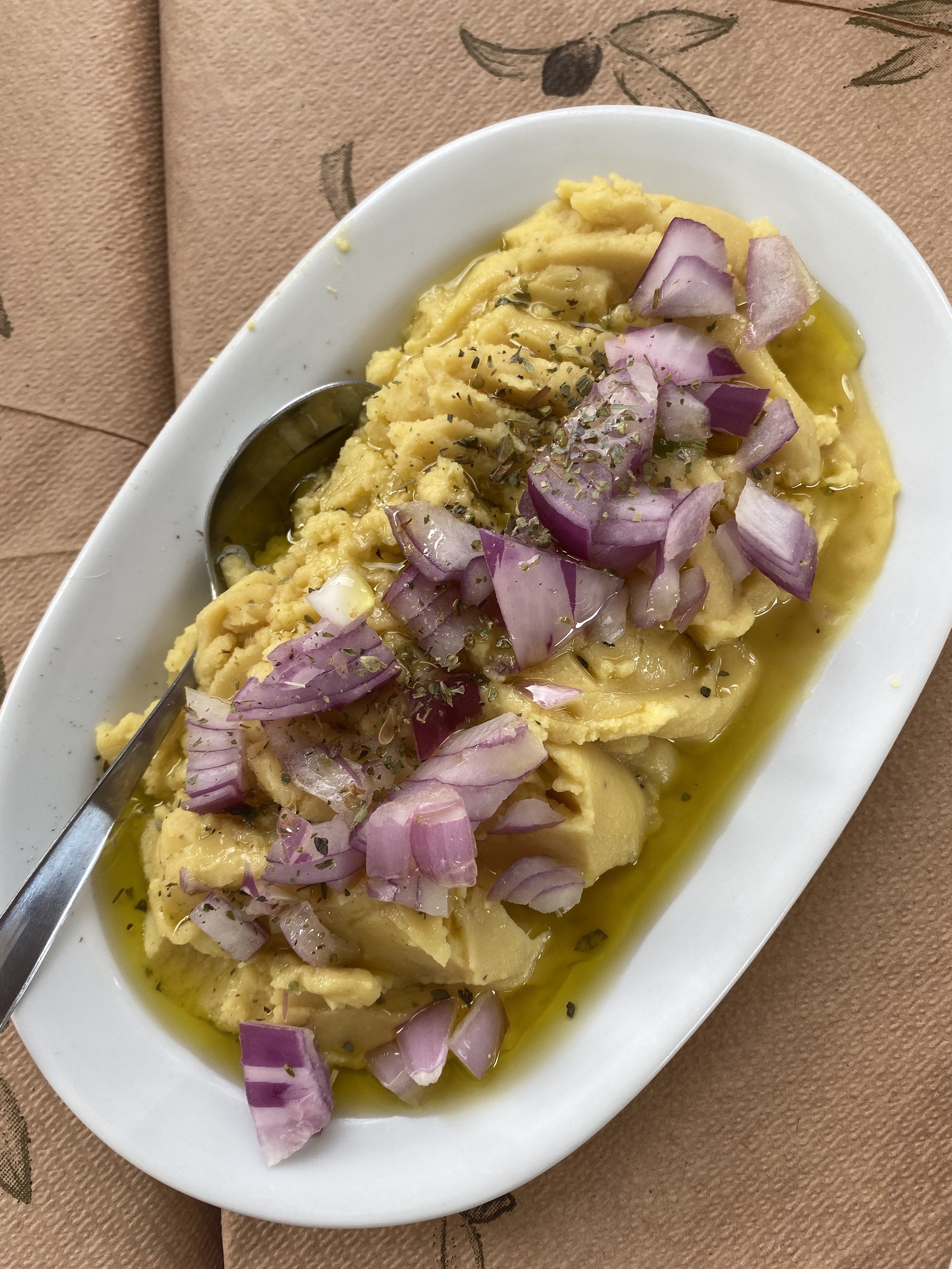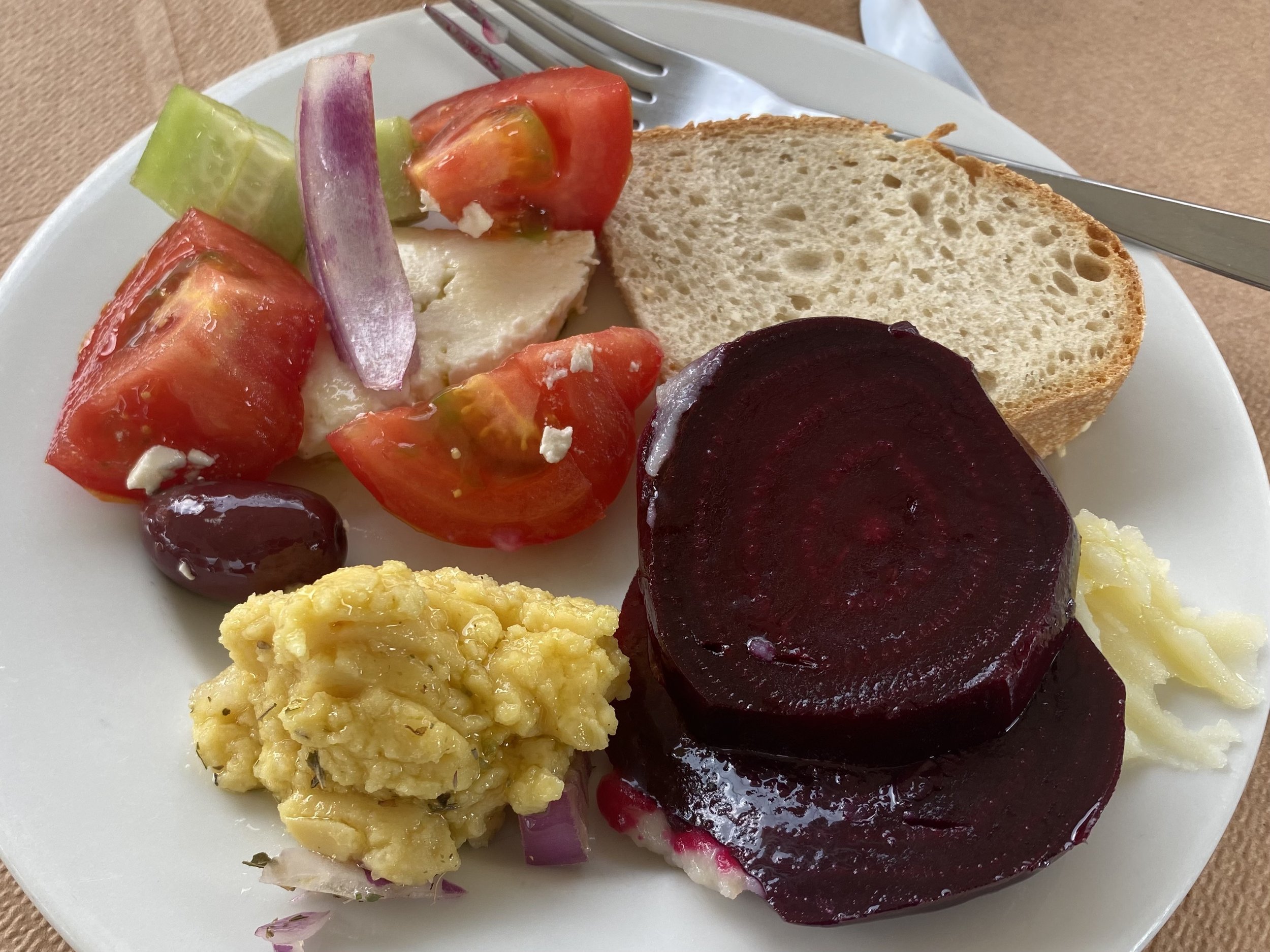Midwest Mediterranean: Delicious Inspiration from Recent Greek Adventures
By: Megan Myrdal
I recently returned from an incredible trip to Greece, a country that some might consider the epicenter of the Mediterranean diet, and home to Mistras Estates - the farm that raises the exceptional extra-virgin olive oil we celebrate in our recently published book - Midwest Mediterranean.
This was my first trip to the Mediterranean region, and to say I was excited to taste the foods and experience the Mediterranean food ways is…. quite the understatement!
During my time dining in Greece, we feasted on the classic dishes - Greek salads with slabs of feta cheese, mashed fava beans drizzled in extra-virgin olive oil, bean & grain salads dressed in perfectly balanced vinaigrettes, and incredible tzatziki that tastes nothing like I’ve tasted in the states!
In Midwest Mediterranean, our goal is to celebrate the foods we grow in abundance in the upper Midwest - the grains, beans, seasonal veggies, and potatoes (to name a few), and highlight ways to pair them with the key ingredients, techniques and flavors of the Mediterranean. Why? Because the diet of this region is one of the most well-researched eating patterns on the planet to prevent cardiovascular diseases, increase lifespan, and promote healthy aging.
AND - It tastes delicious!!
While we dined on much of the incredible foods I mentioned above, I was somewhat surprised how often we ate our stereotypical Midwest staples - meat & potatoes. I would venture to say we enjoyed potatoes every single day. No complaints - they were awesome! And, I ate so much pork on this trip that I began joking that my “big Greek vacation” was actually my “big pork vacation!” And of course, no complaints here because - pork!
Meat & potatoes are villainized a lot in today’s food conversation. Meat takes issue for being associated with increased risk for cardiovascular disease, certain types of cancer, and contributing to greenhouse gas emissions, and the way the majority of Americans eat potatoes (chips and fries) contributes to excess fat, salt & calories - things the majority of us don’t need more of.
In the upper Midwest, we are an incredible potato producing region and have a proud ranching culture. These are beloved agriculture practices and foods that most Midwesterners don’t want to live without, nor should they.
Meat and potatoes are key parts of our food culture, economy, and can be incorporated into a healthy, balanced, and delicious Midwest Mediterranean diet. As the focus of Midwest Mediterranean is “finding health and flavor with the foods of the north” I’d like to share a few ideas I gleaned in Greece (and here in the north) for how we can consider enjoying these foods in a way that nourishes our bodies, supports good farmers here and abroad, and is mindful of how these foods impact the health of our planet:
Meat, Potatoes, And... A healthy, balanced diet is more than a single food - whether that’s choosing to eat something in your diet, or choosing to remove something from your diet. For example, I’ve seen countless people choose a vegetarian eating pattern that is by no means healthy, and on the opposite side - I’ve seen people eat a diet rich in meat that’s exceptionally healthy. When we talk about a healthy, balanced diet, it’s really about taking the total diet into context. If you are eating meat and potatoes, what accompanies that? What are you eating in addition to those food items, and what are you eating at other meals? Is breakfast a protein rich omelet with veggies or is it a caramel roll? Is lunch a hearty grain & bean salad with a nutrient-rich extra-virgin olive oil dressing, or is it a hamburger and French fries. No single food will make or break a healthy diet. Take the whole diet into context, and if you decide to include meat & potatoes, round out those foods with other nutrient rich options - namely fruits, vegetables, whole grains, beans and extra-virgin olive oil.
Mediterranean Potatoes vs. Midwest Potatoes: When it comes to making healthy food choices, it’s not only what you eat, but how that food is prepared and the portion size that matters. Potatoes are a nutrient-rich vegetable that contain healthy doses of fiber, potassium and vitamin C, along with a variety of other nutrients. However, when potatoes are prepared in fried form, what’s added (salt & fat) outweighs the original potato goodness. A large McDonald’s French fry order has 490 calories and 400 mg of sodium, whereas a small baked potato has 110 calories and no sodium. While in Greece I enjoyed an abundance of oven roasted potatoes that were prepared with extra-virgin olive oil, lemon and fresh herbs. These were some of the most delicious potatoes I have eaten, and a study published in the Journal of Food Chemistry found that the phenols and antioxidants from extra virgin olive oil are transferred to vegetables cooked in it, thereby increasing the overall nutrition content of the potato. When you eat potatoes with extra-virgin olive oil, you're not only getting the good nutrition from the potato — you’re also enhancing it with the goodness from the olive oil. What a bonus! And even better - it tastes awesome!
“It’s Not the Cow It’s the How” - I first heard this phrase from Gabe Brown, a regenerative farmer/rancher and owner of Nourished by Nature near Bismarck, ND. Food of the North was lucky to host a talk with Gabe this year called “The Art of Regenerative Grazing” and we learned all about his farm and ranch. During this presentation Gabe talked about how cattle and red meat have a negative image in the food/agriculture world today, but he shared how he integrates cattle into his farm/ranch in a way that promotes soil health, biodiversity, promotes carbon sequestration, no chemicals or synthetic fertilizer use, and creates a product that has a superior nutrient profile compared to conventionally raised meat. Animal agriculture is not a monolith. There are many opportunities to purchase meat products for local producers that are sustainably and humanely raised. Go find them!
Know Your Farmer - Food is produced in countless ways, and even the way the same food is produced can vary widely from farmer to farmer. In Greece I had the opportunity to meet Eugene Ladopoulos, managing partner & founder of Mistras Estates - an olive farm just outside ancient Sparta. This trip is an annual pilgrimage that Peter Schultz Importer has made with folks from the Upper Midwest for over a decade. Why? To deliberately and intentionally cultivate a relationship between our community and the Mistras community. As part of developing our book, Midwest Mediterranean, Peter and I discussed our love of eating local, but also how we can think bigger about the concept of local. Can we learn from and form relationships with farmers, both here and abroad, to know their agricultural ways, and if we believe in them, support them? As we toured Eugene’s olive farm and learned about his agricultural practices, I was inspired by his management techniques and how he embraces permaculture and working in partnership with nature. Eugene’s olive ranch is truly an olive forest, and it was incredible to witness the biodiversity within his groves, and hear how each plant plays an important role in supporting the health and flavor of his olives and the ecosystem at large. However, as we saw neighboring farms, what Eugene is doing on his farm is the exception, not the rule. Knowing your farmer, hearing how they treat their trees, plants, soil, microorganisms, animals, workers, and neighbors matters. In the upper Midwest, we have ample opportunities to meet farmers who, more often than not, are happy to share what they are doing on their farm or ranch, and why they are doing it. We can also travel to new places to meet farmers, like Eugene, and learn about new food ways. I encourage you to meet farmers - learn what they are doing and why they are doing it, and if you believe in it, support it.
Travel provides an opportunity to see and appreciate differences in the world, but also an opportunity to appreciate how our way of life parallels other places. We always have an opportunity to do things better, and Greece provided some wonderful, delicious inspiration for how we can enjoy our northern foods, and Mediterranean foods, and do so in a way that nourishes our bodies and the planet.

